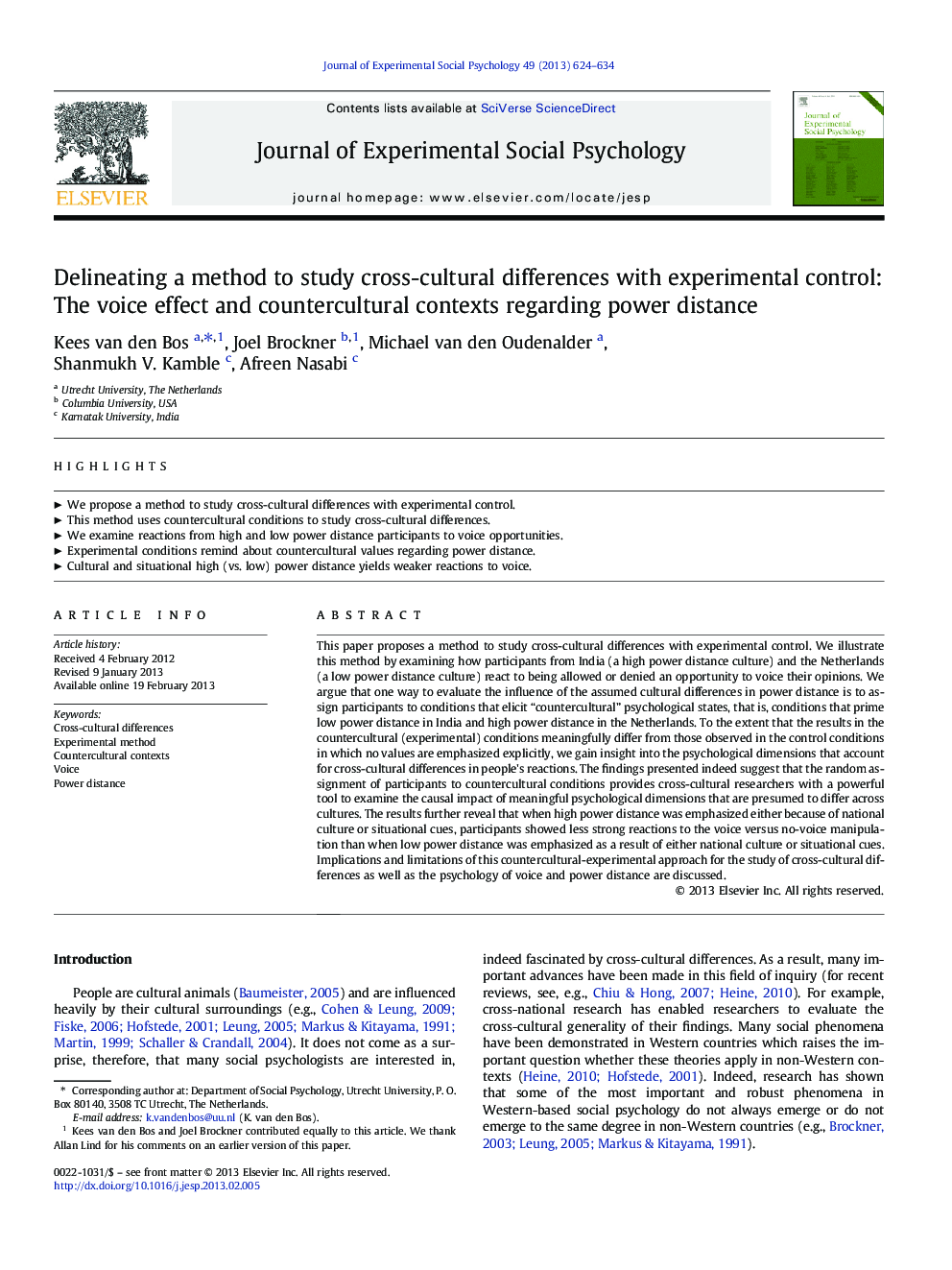| Article ID | Journal | Published Year | Pages | File Type |
|---|---|---|---|---|
| 947912 | Journal of Experimental Social Psychology | 2013 | 11 Pages |
Abstract
This paper proposes a method to study cross-cultural differences with experimental control. We illustrate this method by examining how participants from India (a high power distance culture) and the Netherlands (a low power distance culture) react to being allowed or denied an opportunity to voice their opinions. We argue that one way to evaluate the influence of the assumed cultural differences in power distance is to assign participants to conditions that elicit “countercultural” psychological states, that is, conditions that prime low power distance in India and high power distance in the Netherlands. To the extent that the results in the countercultural (experimental) conditions meaningfully differ from those observed in the control conditions in which no values are emphasized explicitly, we gain insight into the psychological dimensions that account for cross-cultural differences in people's reactions. The findings presented indeed suggest that the random assignment of participants to countercultural conditions provides cross-cultural researchers with a powerful tool to examine the causal impact of meaningful psychological dimensions that are presumed to differ across cultures. The results further reveal that when high power distance was emphasized either because of national culture or situational cues, participants showed less strong reactions to the voice versus no-voice manipulation than when low power distance was emphasized as a result of either national culture or situational cues. Implications and limitations of this countercultural-experimental approach for the study of cross-cultural differences as well as the psychology of voice and power distance are discussed.
Related Topics
Life Sciences
Neuroscience
Behavioral Neuroscience
Authors
Kees van den Bos, Joel Brockner, Michael van den Oudenalder, Shanmukh V. Kamble, Afreen Nasabi,
